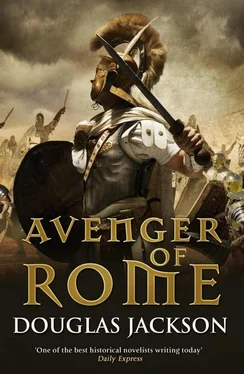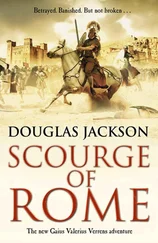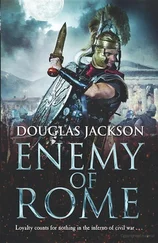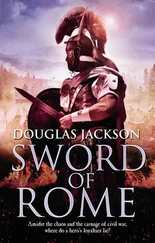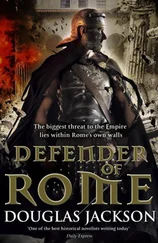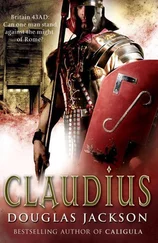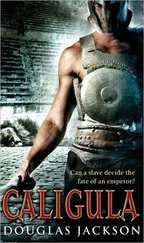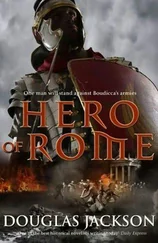Douglas Jackson - Avenger of Rome
Здесь есть возможность читать онлайн «Douglas Jackson - Avenger of Rome» весь текст электронной книги совершенно бесплатно (целиком полную версию без сокращений). В некоторых случаях можно слушать аудио, скачать через торрент в формате fb2 и присутствует краткое содержание. Жанр: Исторические приключения, на английском языке. Описание произведения, (предисловие) а так же отзывы посетителей доступны на портале библиотеки ЛибКат.
- Название:Avenger of Rome
- Автор:
- Жанр:
- Год:неизвестен
- ISBN:нет данных
- Рейтинг книги:3 / 5. Голосов: 1
-
Избранное:Добавить в избранное
- Отзывы:
-
Ваша оценка:
- 60
- 1
- 2
- 3
- 4
- 5
Avenger of Rome: краткое содержание, описание и аннотация
Предлагаем к чтению аннотацию, описание, краткое содержание или предисловие (зависит от того, что написал сам автор книги «Avenger of Rome»). Если вы не нашли необходимую информацию о книге — напишите в комментариях, мы постараемся отыскать её.
Avenger of Rome — читать онлайн бесплатно полную книгу (весь текст) целиком
Ниже представлен текст книги, разбитый по страницам. Система сохранения места последней прочитанной страницы, позволяет с удобством читать онлайн бесплатно книгу «Avenger of Rome», без необходимости каждый раз заново искать на чём Вы остановились. Поставьте закладку, и сможете в любой момент перейти на страницу, на которой закончили чтение.
Интервал:
Закладка:
‘The key is to fight on your enemy’s ground. If he outnumbers you, which he generally does in our case, once he has boarded you it is only a matter of time before he prevails. So you must board him. The first two or three over the side will probably die, of course’ — his smile said it was regrettable but necessary — ‘but once you have formed your shield line you will find your Roman soldier or even marine is a match for any pirate.’
Valerius thanked him. He kept his eyes on the table, but his attention was drawn to Domitia, who was discussing the uprising in Judaea with Tiberius. The war had begun so disastrously for the Roman commander of the province, Cestius Florus, that rumour said he was to be replaced by Titus Flavius Vespasian, one of the generals who had conquered Britain for Claudius almost a quarter of a century earlier. ‘I had thought we might be diverted there, but it will be an honour to serve with your father,’ the younger tribune said smoothly. ‘His success in Armenia has brought new laurels to the Empire. They say that even now their king is in Rome paying homage to the Emperor.’
Domitia nodded gravely. ‘You may find serving with my father more of an honour than you are comfortable with, tribune. His reputation as a disciplinarian is well deserved and I have no doubt that you are replacing some young officer who has failed to meet his standards.’
‘Discipline comes easily to me, my lady,’ Tiberius said offhandedly. ‘But no soldier is so perfect that he cannot be improved by more training. I will use what time I have on board to prepare.’
She smiled. ‘He would have been impressed by your display yesterday morning, though possibly not by the fact that I witnessed it.’
‘My apologies, lady.’ Valerius found his voice at last. ‘We should have taken more care. From now on we will exercise in the stern. You will not be disturbed again, I hope.’
‘Do not concern yourself, tribune.’ Domitia gave a coarse little laugh. ‘I found it most instructive. If ever I discover myself with a sword in my hand, at least I will know what to do with it. In any case, if blame there was, it was mine. I was curious and, as Tulia is always reminding me, sometimes curiosity takes you places you should not go.’
VI
Summer, AD 66
The Sun King looked out upon his people from the balcony of the great Golden House he had built over the ashes of Rome’s third district and felt an unexpected surge of affection. Less than two years ago thousands of Romans lived their shabby little lives on this very land, but the gift of fire had allowed him to substitute splendour for squalor and magnificence for mediocrity. The houses and apartments had been replaced by a vast country villa in the centre of the urban landscape; three hundred and sixty paces from wing to wing, with three hundred rooms each filled with rare bronzes, gilt statues and the finest artworks in the Empire, all surrounded by trees and pasture and lakes, and a great park in which roamed wild animals from all over the world. A Golden House for a Golden Age, and this would be the greatest day of that age.
With perfect timing the morning sun rose above the hills and everything around him gleamed as its rays reached out to caress the gold leaf and gold paint and golden statuary which covered the front of the vast building. The effect was such that it blinded those unfortunate enough not to be shielded by the huge cloth awning which portrayed him in his chariot driving the four horses of the sun god. His heart swelled with pride. He wanted them to be blinded. Blinded by his magnificence. Awed by his power.
He was not a fool. He understood he had lost the Senate and the aristocracy. But he still had the people and he still had the legions and he still had his Praetorian Guard. These were the triumvirate which cemented his power, not the whining politicians who complained at every expense and every little excess. The Golden House, which stretched between the Palatine and Esquiline hills, had come close to bankrupting the imperial treasury. Tigellinus, his commander of the Guard, could only ensure its completion by ordering the officials to cut the silver content of the denarius, but it was all worth it, because this — and his heart beat faster as he considered what he had achieved — this was his legacy to his people. No longer could he be compared to Divine Augustus and found wanting. In the Golden House he had created a monument to Rome’s glory that outshone anything his illustrious ancestor had been able to devise. A monument that would last a hundred lifetimes of ordinary men.
‘Caesar?’
With a smile, the Emperor Nero Claudius Caesar Germanicus turned to his imperial secretary. He had been quite lost in his own thoughts.
‘King Tiridates is here.’
‘Thank you, Epaphradotus.’ This was the second ceremony to welcome Armenia into Rome’s keeping. The first, in the forum, had been a mere appetizer compared to what was to come. Nero looked to the rear of the balcony where the king of Armenia waited in his long robes. A swarthy predator’s face, the clubbed beard reaching his chest, nose like an axe blade and heavy brows, topped by a shining thatch the colour of pitch and styled in tight ringlets. A savage face. But a noble head. A head awaiting a crown. Had another Emperor been in Nero’s place, King Tiridates would now be in the carcer, Rome’s prison, awaiting the bite of the strangling rope, for Tiridates had been an enemy of Rome. He and his brother, Vologases of Parthia, had fought two long, expensive wars against the Empire. If Nero had followed his generals’ advice there would have been a third and Tiridates would have been crushed on the battlefield and slaughtered with his army. But wiser counsels had prevailed and now the king was here to pay homage to his Emperor and to Rome.
He called Tiridates forward, and as the king stepped out into the light the massed ranks below and on the surrounding hills, and on the far-off houses, erupted into frenzied cheering, so that the balcony was hit by an almost volcanic wave of sound. Nero felt himself grow along with the volume of applause. This was what he lived for, this adulation and proof of his dominion. This was what had spurred him to invest so much effort and expense in his voice and his bearing. For a moment, he was possessed by an overwhelming urge to sing; to give them the joy that came entwined as one with his talent. But the moment passed and now Tiridates was on his knees laying the triple crown at his feet and he was looking down at the mass of dark greasy curls and the cheering was ever louder. Together, the two serving consuls, Telesinus and Paulinus, handed him the jewelled diadem of laurel leaves. With great ceremony he placed it over the other man’s head. Tiridates murmured something in his native Parthian. It could have been thanks or mortal insult, but Nero cheerfully offered his hand to his new brother king and drew him to his feet, bestowing a kiss to show his affection.
Turning to the crowd, he raised his hands and in that single movement commanded a hundred thousand people to silence. ‘Let the celebrations begin,’ he called in his high-pitched man-boy’s voice, and the cheering re-erupted.
The two rulers took the broad stairway to the ground floor, where Nero deliberately conducted his guest through the shadow of one of the wonders of the Empire, the astonishing statue he had commissioned of himself as the sun god, Sol. Close to one hundred cubits in height and covered entirely in gold leaf, it was the largest marble sculpture in the world, dwarfing even the legendary colossus which had stood astride the entrance to the harbour of Rhodes. It portrayed a pensive, benevolent Nero, with the sun’s rays radiating from his head like a crown, his left hand, holding a globe, stretched towards his people and in his right the whip with which he would drive the horses drawing his chariot. It was a glorious piece of uninhibited self-indulgence, a thousand lifetimes of wealth incorporated in a single piece of art. As he passed it, King Tiridates wondered at the colossal vanity of the unprepossessing, almost effeminate young man beside him.
Читать дальшеИнтервал:
Закладка:
Похожие книги на «Avenger of Rome»
Представляем Вашему вниманию похожие книги на «Avenger of Rome» списком для выбора. Мы отобрали схожую по названию и смыслу литературу в надежде предоставить читателям больше вариантов отыскать новые, интересные, ещё непрочитанные произведения.
Обсуждение, отзывы о книге «Avenger of Rome» и просто собственные мнения читателей. Оставьте ваши комментарии, напишите, что Вы думаете о произведении, его смысле или главных героях. Укажите что конкретно понравилось, а что нет, и почему Вы так считаете.
